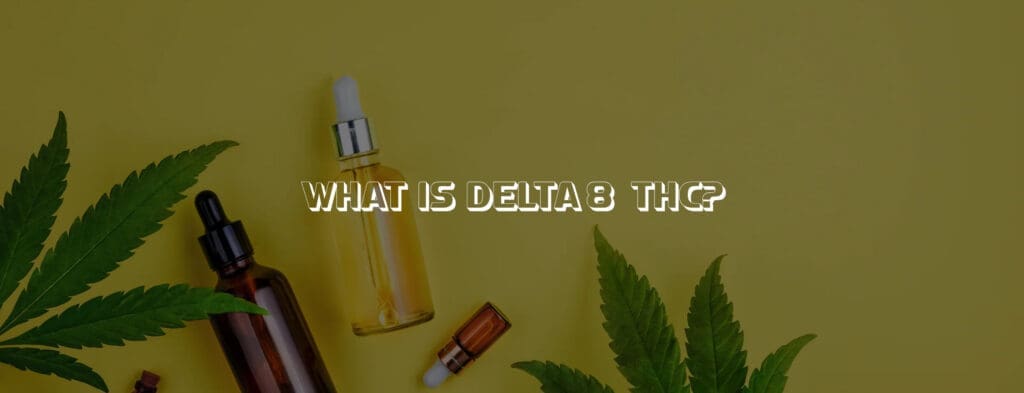Delta-8 THC is short for Delta-8-Tetrahydrocannabinol. It is one of over 100 closely related compounds in the Cannabis plant collectively referred to as Cannabinoids.
A Cannabinoid is any molecule (natural or synthetic) that interacts with the Endocannabinoid system (ECS). Most Cannabinoids are non-psychoactive, which means they don’t make users feel high from using them.
THC Delta-8 and Delta-9 THC are both considered active Cannabinoids.
THC activates the Endocannabinoid receptors in the brain, temporarily altering our sensory perception and other functions.
Delta-8 THC is identical to Delta-9 THC, aside from three distinct differences:
- Chemical structure: Delta-8 THC has a double bond in the 8th carbon chain instead of the 9th carbon chain.
- Effect profile: Delta-8 THC is much more relaxing and less likely to cause side effects than Delta-9 THC.
- Legality: Delta-8 THC is regulated differently than Delta-9 THC and legal in most US states (more on this later).
Where Does Delta-8 THC Come From?
This cannabinoid occurs naturally, but in very low concentrations. Delta-8 THC forms as a byproduct of Delta-9 THC which is much more abundant in cannabis.
As Delta-9 THC breaks down under exposure to UV light and oxygen, most of it is converted into CBN (Cannabinol). The rest forms Delta-8 THC. Most dried cannabis flower contains less than 1% Delta-8 THC.
The concentration of Delta-8 THC can be increased by exposing the plant to UV light, which speeds up the change. THC can then be extracted, concentrated, and separated into its Delta-8 and Delta-9 fractions.
However, any product made from non-hemp cannabis plants is considered restricted and may not be legal to purchase depending on local state laws. Instead, most Delta-8 products are made from hemp which is entirely legal throughout the United States.
What Does Delta-8 THC Feel Like?
Delta-8 THC is much smoother and clear-headed than Delta-9. People who experience anxiety after using THC often turn to Delta-8 THC instead for its more relaxing nature.
Lower doses of Delta-8 (5-15 mg) are better for when you’re working or studying. At this dose, Delta-8 can encourage out-of-the-box thinking and make the workload feel lighter. Higher doses are much more psychoactive similar to the Delta-9 form, but with a stronger body load.
What’s The Dose of Delta-8 THC?
There is very little research specific to the delta 8 isomers to help elucidate the ideal dosage. Generally speaking, the equivalent dose of Delta-8 is about twice the dose of the Delta-9 version.
The most commonly used doses of Delta-8 THC can be split into three doses:
- Low Dose: 10 mg
- Moderate Dose: 40 mg
- Strong Dose: 60 mg
The effects of a given dose can vary from one person to another, so it’s important to start with a lower dose first and increase once you’re familiar with how this Cannabinoid affects your body individually.
What is Delta-8’s Legal Status?
The 2018 Farm Bill classifies hemp as an agricultural product as long as it contains less than 0.3% Delta-9 THC. Since Delta-8 THC exists naturally in the hemp plant, it is legal on a federal level.
How Much THC is in Delta-8?
When it comes to Delta-8, it isn’t so much about the quantity of THC in the products as it is the potency. Different products may contain higher concentrations of Delta-8, increasing its potential effects, but the key difference is how it makes you feel. As mentioned earlier, Delta-8 has been found to have a less-intense effect on most people. The chemical differences between it and Delta-9 THC mean you could take the same amount of each and experience different effects, with Delta-8 THC giving you a more mellow high.


